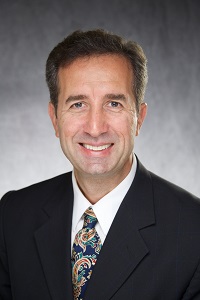TASSA editor brings popular science to thousands in Turkey through his podcast.
 Every other Saturday, Bahri Karacay, the current editor of TASSA and a research associate professor of Pediatrics at the Carver College of Medicine of the University of Iowa, puts on his headphones and records the upcoming episode of his popular podcast "Bahri Karacay ile Bilim". Since October of 2015, iTunes-Turkey has featured "Bahri Karacay ile Bilim" as one of the top podcasts in Turkey. “I am pleasantly surprised with the response that my podast is receiving” says Karacay. “There are thousands of popular science enthusiasts from all walks of life in Turkey.
Every other Saturday, Bahri Karacay, the current editor of TASSA and a research associate professor of Pediatrics at the Carver College of Medicine of the University of Iowa, puts on his headphones and records the upcoming episode of his popular podcast "Bahri Karacay ile Bilim". Since October of 2015, iTunes-Turkey has featured "Bahri Karacay ile Bilim" as one of the top podcasts in Turkey. “I am pleasantly surprised with the response that my podast is receiving” says Karacay. “There are thousands of popular science enthusiasts from all walks of life in Turkey.
Karacay conceived the idea of science podcasts after his first popular science book "Yasamin Sirri DNA". Published in December 2010 by the Turkish Scientific and Technological Research Council (TUBITAK), it became an instant best seller. The fifth print of the book just came out making it the fastest selling popular science book printed by TUBITAK. It’s success also demonstrated interest in popular science in Turkey. Books are a great resource, but Karacay wanted a quicker way to deliver popular science news to Turkey, and a podcast seemed to be the fastest way to accomplish this. Karacay published his first episode of his podcast on February 2014. "Many people in Turkey still do not know what podcast is. But I think this is starting to change. Bahri Karacay ile Bilim has been downloaded more than ninety thousand times so far and currently averages about ten thousand downloads per month.
Bahri Karacay ile Bilim primarily covers recent developments in life sciences. Karacay uses his podcast also as a way to share his own knowledge and experiences as a scientist, along with the work of other Turkish-American Scientists, to his listeners. "Since the publication of my first book, I have recieved a lot of e-mails. A common question is, “how do I become a scientist?" says Karacay. "I try to provide wisdom and practical advice about how to become a successful scientist by interviewing Turkish scientists living in the States."
Podcasting is growing in popularity among scientists who not only want to do science but also share their findings with wider audiences. One of the best example is Vincent Racaniello of Columbia University and his podcast, "This Week in Virology -TWIV". Rancaniello’s podcasts are downloaded thousands of times every week around the world.
"Even in the United States podcasting is relatively new, but it is rapidly mainstreaming," says Karacay. "A podcast player is now on every smart-phone and on the dashboard of every new car in the States. It’s now a part of daily life."
The percentage of Americans who have listened to podcast has almost doubled since 2008 according to Pew Research Center. Many scientific journals not only have their own podcasts, but they also ask the corresponding authors to send a summary podcast along with their manuscripts accepted for publication.
"In the past, scientists have done a poor job in communicating their findings to the general public" says Karacay . "But I think it’s time to change that. Because the technology to do so is here: podcasting is a powerful communication tools for anyone, including scientists."
“Bahri Karacay ile Bilim” can be accessed by clicking here.